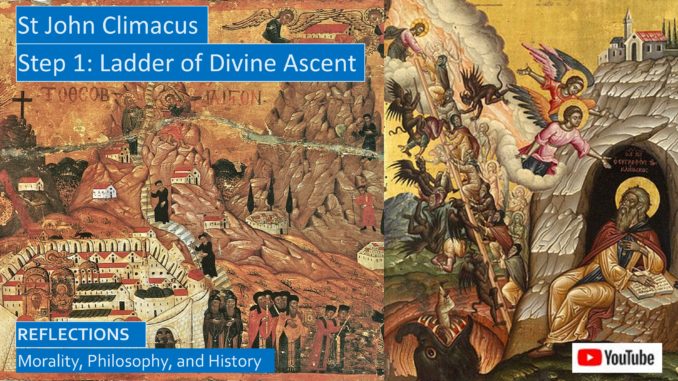
The Ladder of Divine Ascent was written in the seventh century by St John Climacus, who lived in the early seventh century, or about three centuries after Emperor Constantine made Christianity a state religion of the Roman Empire. We have not inherited any stories on why he decided to become a monk, but the scholarly consensus[1] is he arrived at the St Catherine’s monastery when he was sixteen.
St Catherine’s monastery is located in the mountains of the Sinai desert. Tradition holds that it is built on Mt Horeb where Moses encountered the burning bush, and later received the Ten Commandments. St Catherine’s monastery is the oldest continually occupied monastery in the world. The buildings of the monastery are surrounded by fortress walls built by Emperor Justinian. They preserve an ancient letter of protection from Mohamed himself, guaranteeing their safety.
There are horror stories of how ignorant monks living at St Catherine’s were using leafs from discarded manuscripts to start their cooking fires in centuries past, but those days are long past, today they have an impressive website and have many modern monks with IT and other technical experience that work at preserving the many valuable manuscripts they preserve for scholars.[2] This monastery has preserved one of key early copies of the New Testament, and also some of the most ancient icons in the world. Many people say we do not know what Jesus looked like, but the Orthodox say this sixth-century icon tells us exactly what Christ looks like.
YouTube video for this blog: https://youtu.be/Fco0W3bt5GA
YouTube script with book links: https://www.slideshare.net/BruceStrom1/st-john-climacus-ladder-of-divine-ascent-preparing-to-ascend-the-first-step
St John Climacus encountered three forms of monastic life at St Catherine’s, quoting from Kallistos Ware’s introduction:
- Inside the fortress walls, a “coenobium, a monastic brotherhood pursuing he common life under the direction of an abbot.”
- “Scattered through the surrounding desert there were hermits dedicated to the solitary life.”
- “Monks following the middle way, with small groups under the immediate guidance of a spiritual father.”
Kallistos Ware continues, “St John Climacus, like St Symeon the New Theologian and St Gregory Palamas in more modern times, lays heavy emphasis upon the need for personal experience. Christianity, as he sees it, is much more than the exterior acceptance of doctrines and rules. No one can be a true Christian at second hand; there must be a personal encounter, in what you know, see, taste and touch for yourself.” Our dear saint refrains from suggesting rules and routines on praying, eating, sleeping, and working. “What matters for him is not physical asceticism but humility and purity of heart. What he offers is not techniques and formulae but a way of life, not regulations but a path of initiation.”[3]
Do you have to be a monk or nun or a priest to be saved? Very quickly our saint answers this question:
“God belongs to all free beings. He is the life of all, the salvation of all – faithful and unfaithful, just and unjust, pious and impious, passionate and dispassionate, monks and laymen, wise and simple, healthy and sick, young and old – just as the effusion of light, the sight of the sun, and the changes of the seasons are for all alike,” as Romans 2:11 says, “God shows no partiality.“[4]
Exactly how can the layman lead a godly life? Our saint teaches us:
“Some people living carelessly in the world have asked me:
‘We have wives and are beset with social cares, and how can we lead the solitary life?’
I replied to them: ‘Do all the good you can; do not speak evil of anyone; do not steal from anyone; do not lie to anyone; do not be arrogant to anyone; do not hate anyone; do not be absent from the Divine Services; be compassionate to the needy; do not offend anyone; do not wreck another man’s domestic happiness, and be content with what your own wives can give you. If you behave in this way, you will not be far from the Kingdom of Heaven.’ “[5]
Laymen can and should read the monastic classics like the Ladder of Divine Ascent, because living the Christian life is itself a type of monastic calling. But since laymen are monks, you need to use common sense when applying the advice to your life situation, some minor allegorizing is needed.
For example, marriage is a monastic calling, the purpose of marriage is the salvation of souls, if each spouse loves the other as themselves, then theirs will be a happy marriage indeed. Another monastic manual has some advice that possibly applies more to a married couple than it does to monks. This wise advice by St John of the Cross teaches us that we should only allow someone to be a close friend to us if our friendship increases in both of us our Love of God and our love for our neighbor.[6]
Work, career and schooling are monastic callings. To get a good job, we spend many years of schooling to learn our trade or profession. If we spend all our school years partying and not studying, we pay for our lack of attention for the rest of our lives. To keep our job, we need to keep our bosses and customers happy. Even when know they are wrong, we bite our tongues and endure, because we work for them, and they are often right anyway. Our job is to serve them. If we mistakenly think they are there to serve us, we will have no job. If the company loses sight of their customers’ needs, the company itself may eventually bankrupt itself.
Child rearing is a monastic pursuit. When children are small, they demand your attention, and sometimes they cry and you don’t know why. You can spend fun time with your children when they are little, playing with them and taking them to the zoo and the park and other fun places, or you can spend anguished time with them later, answering to judges and policemen. St Paul in Timothy teaches us that mothers are saved through child rearing if they lead a godly life. We are all saved if we put the needs and desires of others ahead of our own selfishness.
Looking ahead to the Obedience rung of the ladder, there is some more very practical advice that our saint has for monks when they are novices that also applies to laymen when they decide which church they wish to attend, or when a new priest or pastor leads their local church:
“If we are prudent we should test our helmsman (i.e., priest or pastor), so as not to mistake the sailor for the pilot, a sick man for a doctor, a passionate for a dispassionate man, the sea for a harbor, and so bring about the speedy shipwreck for our soul. But when once we have entered the arenas of piety and obedience, we must no longer judge our good manager in any way at all, even though we may perhaps see in him some slight failings, since he is only human. Otherwise, by sitting in judgment we shall not profit from our obedience.”[7]
Laymen cannot be closely directed by their priests or pastors like monks are by their spiritual fathers, or abbots, because laymen usually do not live out their daily life with their priests or pastors. But laymen need to be comfortable with the spirituality of their priest or pastor. If you pastor or priest tells you truth that needs to be heard that you do not like, you should still listen; and if they ask you to change your ways in a way you do not like, you should be very reluctant to go against their advice. This advice is more applicable to those Christians who see Confession as a Sacrament, Catholic and Orthodox, but this can also be applicable when you seek spiritual counseling for your marriage or other life problems. This trust for clergy is far more important than convenience, music ministries, or whether you feel “spiritually fed” or entertained.
The first rung is about the climb, ever persisting, ever repenting, ever climbing, as the final paragraph impresses on us:
“So, who is a faithful and wise monk? He who has kept his fervor unabated, and to the end of his life has not ceased daily to add fire to fire, fervor to fervor, zeal to zeal, love to love. This is the first step. Let him who has mounted the ladder not turn back.”[8]
Living a godly life takes effort. Learning how to live a godly life takes study. And it takes time, for we will either spend our time living a godly life, or spend our time living an ungodly life, that is our choice.
Our saint progresses from fire to fervor to zeal to love. Our saint teaches us that “all who enter upon the good fight, which is hard and close, but also easy, must realize that they must leap into the fire, if they really expect the celestial fire to dwell in them.”[9] What does our saint mean exactly? Perhaps that sometimes we need to stand up and do what is right even when that is unpopular, or correct a slander during a conversation, or perhaps risk their job or their life when great injustices occur.
St John Climacus defines the transgressor as “one who holds the law of God after his own depraved fashion.”[10] We are reminded of the Book of Judges, that book that contains so many puzzling and twisted and horrible stories, that book that often laments that in those times every one in Israel “did what was right in his own eyes.”
That reminds us of the often-told joke:
What is the difference between someone who goes to church on Sunday, and someone who goes to the beach on Sunday?
The difference is the person who goes to the beach on Sunday doesn’t think he needs to go to Church, because he doesn’t need to change. Similarly, the person who goes to Church on Sunday doesn’t need to change either, because he goes to church.
That’s the real rub. We like spirituality, we like the beach, Church is okay, we might even read the Bible occasionally, on our own terms, as long as the Church doesn’t try to tell us what to do. God is not that much of a problem, because often we can imagine him to say whatever homogenized truths we want him to say, but the Church, with all these preachers preaching away, that can be a real problem, they might tell us things we do not want to hear.
This admonition by our saint applies to all, including laymen: “Let no one, by appealing to the weight and multitude of his sins, say that he is unworthy of the monastic vow, and for love of pleasure disparage himself, excusing himself with excuses in his sins. Where there is much corruption, considerable treatment is needed to draw out all the impurities. The healthy do not go to a hospital.”[11]
St John Climacus observes that “in the very beginning of our renunciation of the world, it is certainly with labor and grief that we practice the virtues.” “Those who at once, from the very outset, follow the virtues and fulfil the commandments with joy and alacrity certainly deserve praise. And in the same way those who spend a long time in asceticism and still find it a weariness to obey the commandments, if they obey them at all, certainly deserve pity.”[12]
What a wonderful prayer that would be, that we would ask of God that we live a godly life with joy, eager to follow the virtues.
[1] Kallistos Ware, Introduction to Ladder of Divine Ascent (Mahwah, NJ: Paulist Press, 1982), p. 3, footnote 7.
[2] http://www.sinaimonastery.com/index.php/en/
[3] Kallistos Ware, Introduction to Ladder of Divine Ascent , pp. 3 – 9.
[4] St John Climacus, Ladder of Divine Ascent (Boston: Holy Transfiguration Monastery, 1991, originally written 1100’s, translated by Colm Luibheid and Norman Russell), p. 4, Step 1, Paragraph 3.
[5] St John Climacus, Ladder of Divine Ascent, Holy Transfiguration Monastery, p. 9, Step 1, Paragraph 21.
[6] St John of the Cross, Dark Night of the Soul (New York:Doubleday, 1990, 1959, originally 1579, translator, E Allison Peers), Book 1, Chapter 4, pp.47-52, and in Fall 2021 we will publish a blog and video on this work.
[7] St John Climacus, Ladder of Divine Ascent, Holy Transfiguration Monastery, p. 22, Step 4, Paragraph 6. I did not want to say “if you are clever and prudent,” because I wonder if the meaning of “clever” has changed and is still valid.
[8] St John Climacus, Ladder of Divine Ascent, Holy Transfiguration Monastery, p. 10, Step 1, Paragraph 27.
[9] St John Climacus, Ladder of Divine Ascent, Holy Transfiguration Monastery, p. 6, Step 1, Paragraph 9.
[10] St John Climacus, Ladder of Divine Ascent, Holy Transfiguration Monastery, p. 4, Step 1, Paragraph 4.
[11] St John Climacus, Ladder of Divine Ascent, Holy Transfiguration Monastery, p. 8, Step 1, Paragraph 19.
[12] St John Climacus, Ladder of Divine Ascent, Holy Transfiguration Monastery, pp. 7 – 8, Step 1, Paragraph 16 – 17.

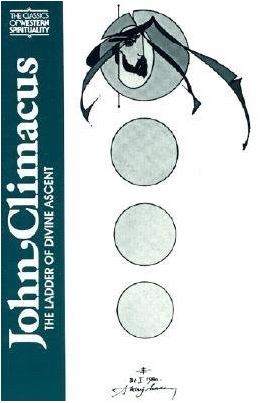
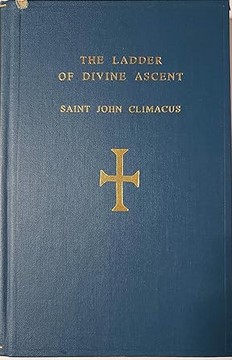
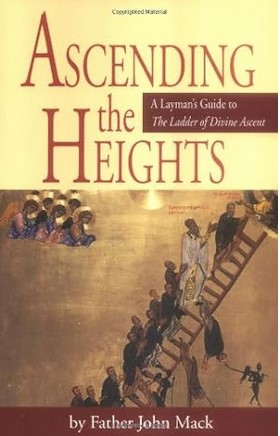
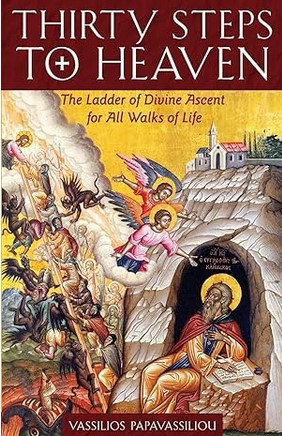
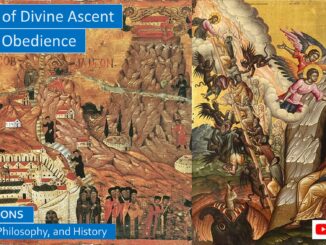
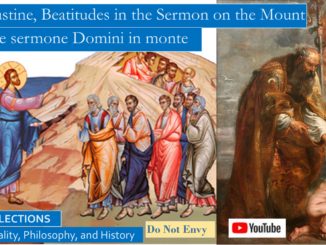
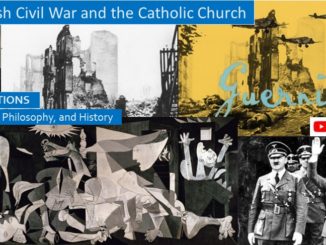
4 Trackbacks / Pingbacks